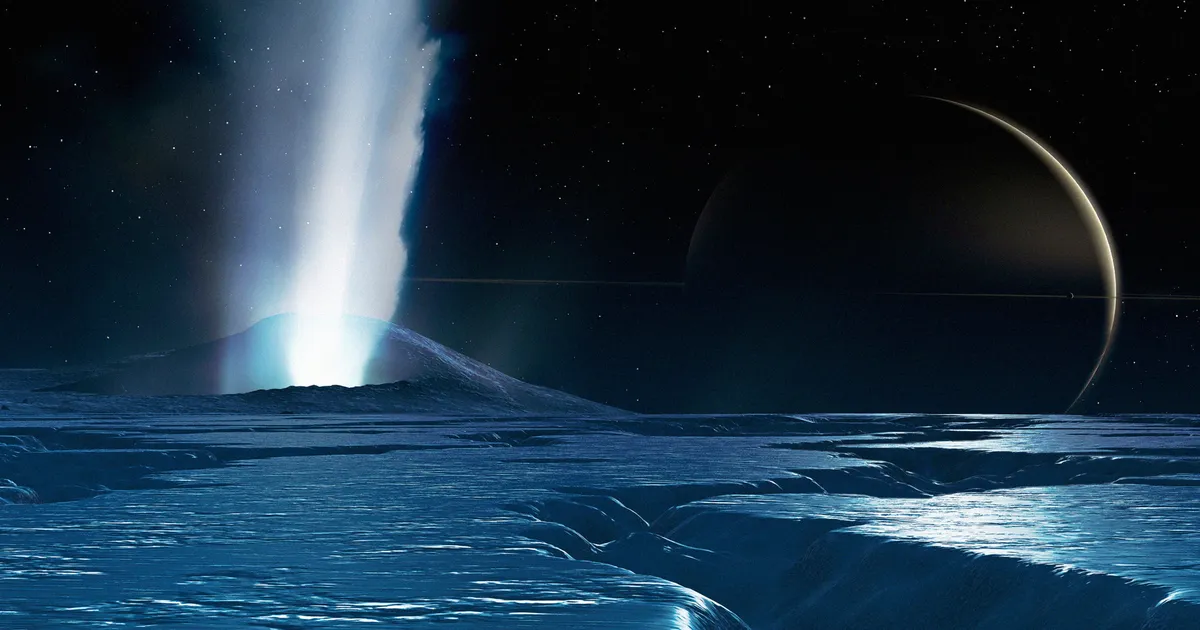
A recent study has revealed that Saturn’s moon Enceladus is emitting significant amounts of complex organic molecules, indicating that it may be an even more intriguing location in the search for extraterrestrial life than previously believed. This groundbreaking research, published in the journal Nature Astronomy, was conducted by examining data collected by NASA and the European Space Agency’s Cassini spacecraft, which explored this fascinating moon from 2005 to 2015.
Researchers have found compelling evidence that Enceladus harbors an underground ocean teeming with complex chemical reactions. These reactions are closely linked to the presence of life on Earth. The findings build upon prior research indicating that jets of water are erupting from this moon's subsurface ocean, propelling ice particles into space, some of which eventually land back on the moon's surface. "Cassini was detecting samples from Enceladus all the time as it flew through Saturn’s E ring," stated lead author and Freie Universität Berlin researcher Nozair Khawaja.
In this study, the research team meticulously analyzed ocean spray data captured by Cassini’s Cosmic Dust Analyzer in 2008. They discovered that the ice grains not only contained frozen water but also a variety of other molecules, including essential organics. "The ice grains contain not just frozen water, but also other molecules, including organics," Nozair elaborated. The particles traveled at approximately 11.2 miles per second, which prevented them from clustering and allowed researchers to detect previously hidden signals.
The study revealed that the organic molecules detected originated from Enceladus' ocean, including compounds never before observed, such as nitrogen- and oxygen-bearing compounds, ethers, and esters. These organic molecules play a crucial role in the chemical reactions that are thought to have led to the emergence of life on our planet, making this discovery particularly exhilarating. "There are many possible pathways from the organic molecules we found in the Cassini data to potentially biologically relevant compounds, which enhances the likelihood that the moon is habitable," said Nozair.
While these findings are promising, confirming the existence of life on Enceladus is still a distant goal that would necessitate a dedicated mission to its surface. "There is much more in the data that we are currently exploring, so we are looking forward to finding out more in the near future," Nozair mentioned. Excitingly, the European Space Agency is contemplating the launch of a spacecraft to Enceladus, as it "ticks all the boxes to be a habitable environment."
Even in the absence of life, findings from Enceladus would represent a significant scientific breakthrough, raising important questions about the conditions necessary for life. "Even not finding life on Enceladus would be a huge discovery because it raises serious questions about why life is not present in such an environment when the right conditions are there," Nozair concluded.